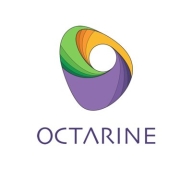

Prisma Cloud by Palo Alto Networks and Octarine are competitive products in the cloud security market. Prisma Cloud appears to hold an advantage due to its broader functionality and more extensive integration capabilities.
Features: Prisma Cloud offers extensive cloud security features, including identity and access management, threat prevention, and compliance monitoring. Its notable integration capabilities across various cloud environments highlight its versatility. Octarine focuses on specialized container security, emphasizing deep security measures for Kubernetes and containerized environments, with an emphasis on runtime threat detection and network visibility.
Ease of Deployment and Customer Service: Prisma Cloud provides a comprehensive deployment experience supported by robust customer service and detailed documentation, ensuring ease for users across diverse environments. Octarine is designed for streamlined integration specifically with Kubernetes, offering quick deployment for containerized applications, but it has fewer support options than Prisma Cloud.
Pricing and ROI: Prisma Cloud generally has a higher initial setup cost, justified by its extensive cloud security which can yield significant long-term ROI for users. Octarine provides a more affordable setup, particularly for those prioritizing container security, where it offers significant ROI within Kubernetes environments.
| Product | Market Share (%) |
|---|---|
| Prisma Cloud by Palo Alto Networks | 9.0% |
| Octarine | 0.1% |
| Other | 90.9% |
| Company Size | Count |
|---|---|
| Small Business | 36 |
| Midsize Enterprise | 22 |
| Large Enterprise | 56 |
Octarine is the most comprehensive security platform for the complete lifecycle of
Kubernetes applications. It’s the only platform you need to instantly operationalize
DevSecOps, delivering continuous cloud native security and compliance for multi-tenant, multi-cluster Kubernetes workloads from Layers 4-7.
Prisma Cloud by Palo Alto Networks provides comprehensive cloud-native security solutions. It covers dynamic workload identity, automated forensics, and multi-cloud protection, ensuring robust security across diverse cloud platforms.
Prisma Cloud delivers advanced capabilities for managing cloud security across AWS, Azure, and GCP platforms. It offers dynamic workload identity creation, real-time monitoring, and seamless integration into CI/CD pipelines. With automation, centralized dashboards, and enhanced visibility, users effectively manage security misconfigurations and vulnerabilities. While optimizing cloud environments through runtime protection and compliance, Prisma Cloud faces challenges with its navigation, pricing, and limited automation capabilities. Users seek improvements in API security, role-based access controls, and documentation quality, emphasizing the need for enhanced customization and reporting features.
What are the important features of Prisma Cloud?
What benefits or ROI should users consider in reviews?
Industries like finance and telecom rely on Prisma Cloud for managing cloud security posture and container security. Teams utilize its capabilities across hybrid and multi-cloud settings to ensure compliance and robust threat protection. Features like misconfiguration detection and runtime monitoring are critical in promoting security objectives in these sectors.
We monitor all Container Security reviews to prevent fraudulent reviews and keep review quality high. We do not post reviews by company employees or direct competitors. We validate each review for authenticity via cross-reference with LinkedIn, and personal follow-up with the reviewer when necessary.